1.1 INTRODUCTION
Businesses with an International Money Transfer Operator (IMTO) license are authorised by the Central Bank of Nigeria (CBN) to facilitate efficient fund transfers from entities or individuals abroad to recipients in Nigeria. Initially issued in September 2014, the IMTO Guidelines, also referred to as the “Old IMTO Guidelines,” govern the licensing and operations of IMTOs in Nigeria.
On January 31 2024, the CBN introduced a reviewed set of IMTO Guidelines “the New IMTO Guidelines,” which update the old guidelines, outlining permissible activities, new organisational structures, and corporate governance standards for IMTOs. Additionally, while the CBN’s Circular of September 13, 2023, required IMTOs to quote an exchange rate within a specific limit for naira payouts to diaspora remittance beneficiaries, the “Removal of Allowable Limit Circular” issued on the same date now permits IMTOs to issue payouts at prevailing foreign exchange market rates.
Both documents have profound legal and practical implications for IMTOs and the Nigerian economy, which will be examined in this article.
1.2 DEFINITION
1.2.1 IMTOs are companies that provide cross-border money transfer services. According to the CBN, they facilitate the transfer of funds from individuals or entities residing abroad to recipients in Nigeria and the payment of a corresponding sum to a beneficiary through a clearing network to which the IMTO belongs.
1.3 NOTABLE PROVISIONS OF THE NEW IMTO GUIDELINES
1.3.1 IMTO Definition and Licensing Process
Unlike the prior guidelines, which lacked a clear definition of IMTOs, the New Guidelines provide a precise definition and establish a two-phase licensing process comprising approval in principle (AIP) and final approval (FA).
IMTOs are defined under the Guidelines as “companies approved by the CBN to facilitate the transfer of funds from individuals or entities residing abroad to recipients in Nigeria and the payment of corresponding sums to beneficiaries through a clearing network to which the IMTO belongs.”
1.3.2 Requirements for Obtaining an IMTO License
The Guidelines outline the requirements for obtaining an International Money Transfer Operator (IMTO) license from the Central Bank of Nigeria (CBN). It further states that approval shall be in two phases: Approval-in-principle (AIP) and Final Approval.
In addition to the requirements contained in the Guidelines, applicants must comply with the requirements of the CBN Guidelines for Licensing of Banks and Other Financial Institutions in Nigeria on Anti Money Laundering, Combating the Financing of Terrorism and Countering Proliferation Financing of Weapons of Mass Destruction (AML/CFT/CPF).
1.3.3 Documentation Requirements for Approval-in-principle
Approval-in-principle may be granted by the Director, Trade and Exchange Department after a non-refundable fee of N10 million has been paid to the CBN and an application has been submitted with the following documents and requirements:
- Application letter to the Director, Trade and Exchange Department CBN, Abuja.
- Evidence of payment of application fee of Ten Million Naira N10,000,000.00 (same as renewal fee) and deposit of minimum share capital of One Million Dollars (US$1m) for foreign IMTOs and the equivalent for indigenous IMTOs.
- Evidence of approval to operate in other jurisdictions or agency agreements (for all IMTOs).
- Incorporation documents with object clause stating the provision of money transfer services.
- Approval to operate in other jurisdictions or agency agreements.
- Evidence of tax clearance and incorporation documents for Nigerian entities.
- The ownership structure of the IMTO
- The approval of the Board of Directors to operate with an IMTO license
- Return on allotment of shares and particulars of directors (Forms C02 and C07)
- Profile of the company including the curriculum vitae, biodata and contact information of the Board and the management of the company
- Information on beneficial owners of the company (where applicable)
- Credit reports from a licensed credit bureau for the shareholders and key officers of the IMTO
- Minimum share capital of $1 million for foreign IMTOs and the equivalent for indigenous IMTOs
- Any other information, documents and reports required by the Bank.
It should be noted that an IMTO cannot commence operations with just an AIP, and the AIP may be withdrawn if the IMTO does not meet the stated requirements. With an AIP, the applicant can open a bank account and proceed with pre-operational processes.
Not later than 3 months after obtaining an AIP, the IMTO shall apply to the CBN for a Final Approval and the documents required for final approval is as follows;
-
- Nature of business
- Internal control system and monitoring procedures
- Security features for IMTOs with offices in Nigeria
- 3yrs financial protection/market analysis
- Transaction charges and other charges to be borne by customers.
- Diagrammatic illustration of transaction flows
- Consumer protection and dispute resolution mechanisms
Upon grant of the Final Approval by the CBN, the IMTO is subject to an annual renewal fee of N10 million payable to the CBN by or before the 31st day of January, that year.
1.3.4 Exclusion of Banks and Fintechs
A notable provision of the New Guidelines is the prohibition of banks and fintech companies from obtaining IMTO licenses. As such, effective from the date of the release of the Guidelines, banks are now excluded from IMTO licensing and those who already obtained the license are prohibited from acting as IMTO operators. Banks are however permitted to act as agents to IMTO licensees. The guideline didn’t state what should happen to FinTech companies that are already licensed under the initial guidance; hence, companies are forced to abide with this restriction, and they are already making changes to their modes of operations and have advised customers accordingly.
1.3.5 Widened User Base
Unlike the previous regulations, which primarily focused on retail customers and person-to-person transactions, the New Guidelines broaden the permissible user bases to include person-to-person (P2P), business-to-person (B2P), and business-to-business (B2B) transactions.
1.3.6 Changes in Transfer Modes and Currency
Previously, IMTOs could use bank accounts, mobile money wallets, and cash for diaspora remittance payouts. However, the New Guidelines restrict payouts to cash and bank accounts, with remittances now limited to the Naira currency.
1.3.7 Fee Adjustment
For a company to engage in international money transfer services, such a company must apply to the director, trade, and exchange department CBN Abuja to obtain a license. Upon submission of the necessary documents as stated above and payment of application fee for an IMTO license which has been substantially increased from N500,000 (Five Hundred Thousand Naira) to N10,000,000 (Ten Million Naira), marking a significant rise that may pose challenges for startups seeking licensure.
1.3.8 Annual Renewal and Record-Keeping Requirements
Under the New Guidelines, IMTOs must renew their licenses annually by January 31st, with a fee of N10,000,000 (Ten Million Naira) and minimum share capital of One Million Dollars for foreign IMTOs and the equivalent for indigenous IMTOs, the CBN shall grant its Approval-in-principle (AIP) as the first stage of the licensing process. Failure to do so within the first quarter may impact the IMTO’s operations. Additionally, the guidelines mandate new record-keeping requirements and returns, including shorter retention periods and more frequent reporting.
As a general compliance rule, the IMTO is expected to adopt policies stating its commitment to comply with Anti-money laundering (AML), Combatting the Financing of Terrorism (CFT), and Countering the Proliferation of Weapons of Mass Destruction (CPD) obligations under subsisting laws, regulations, and directives and to actively prevent any transactions that otherwise facilitate criminal activities. IMTOs shall further identify, review, and record areas of potential AML/CFT/CPD policies, and procedures in their strategic policies and monitor compliance of their agents with AML/CFT requirements.
1.4 THE REMOVAL OF ALLOWABLE LIMITS CIRCULAR
In a circular dated 13 September 2023, the CBN mandated IMTOs to adhere to rates within a specific allowable range of -2.5% to +2.5% around the previous day’s closing rate of the Nigerian Foreign Exchange Market for their transactions. This directive limited IMTOs’ ability to set or quote rates beyond this margin. The recent Circular Removing Allowable Limits has abolished the previous limits of -2.5% to +2.5%. Consequently, the applicable or reference exchange rate will now be determined by the prevailing rate at the Nigerian foreign exchange market, based on the willing buyer, willing seller principle.
1.5 THE ECONOMIC IMPLICATIONS OF THE CBN’S MEASURES ON NIGERIA’S FOREIGN EXCHANGE SYSTEM
The CBN perceives that the activities on forex platforms are exerting excessive pressure on the naira, and they anticipate that prohibiting such trading will alleviate this pressure, leading to an appreciation of the naira against the dollar. However, the overall effectiveness of this strategy may be questionable, given the liquidity constraints present in the market.
While there are other factors and activities weakening the Naira, limiting the forex market is not the main challenge facing the currency. Nigeria is currently dealing with a backlog of remittances, which has created pressure in the market given the scarcity of forex in the economy.
It is crucial for the CBN to carefully weigh the short-term benefits of these policies against their long-term consequences. A balance between managing currency volatility and ensuring market liquidity is essential to foster a stable and thriving economic environment.
Furthermore, collaborative efforts involving policymakers, regulators, and market participants are necessary to develop holistic solutions that address underlying structural issues while minimising disruptions to market dynamics.
1.6 CONCLUSION
The New Guidelines, along with the Removal of Allowable Limit Circular, introduce significant changes requiring careful consideration by IMTOs and fintech firms. These changes are part of the CBN’s FX reforms aimed at liberalising the market, enhancing transparency, and boosting diaspora remittances and foreign capital inflows in Nigeria. However, they also have significant implications for the fintech sector’s ability to operate within the remittances space. Compliance and adaptability are crucial for navigating these evolving regulatory dynamics.





